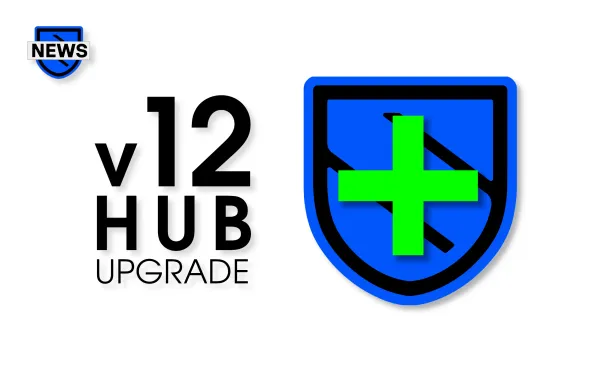UAE Residents Boost VPN Downloads by 1.8 Million in 2023

Virtual Private Network Adoption Rate in the Emirates Among Highest in the World
In 2023, UAE residents increased their downloads of virtual private network (VPN) apps by 1.83 million, reaching a total of 6.1 million, as reported in the latest update of the Global VPN Adoption Index.
This pushed the VPN adoption rate in the UAE to 61.7 per cent last year, the second highest in the world after Qatar's 69.87 per cent. The adoption rate shows what percentage of the country's population downloaded VPN services in 2023.
The UAE recorded the highest VPN application downloads in 2023 in the past four years, surpassing the pandemic year's downloads of 6.09 million in 2020. VPN downloads peaked in UAE during the pandemic year as residents were largely staying indoors due to travel and movement restrictions to contain the spread of Covid-19.
The Legality of VPNs in the UAE
The usage of VPN in the UAE is not illegal if it's used as per the guidelines of the UAE government and the Telecommunications and Digital Government Regulatory Authority (TDRA). However, using VPNs for illegal means or to commit a crime is a serious offence under the UAE Decree Law No (34) of 2021 concerning combating rumours and cybercrimes.
Also, using a VPN by hiding the IP address to get access to websites/calling applications /gaming applications which are blocked by the UAE government is illegal. Under Article 10 of the UAE Cyber Law, people misusing VPNs could face imprisonment and a fine between Dh500,000 to Dh2 million.
The Benefits of Decentralized VPNs like Sentinel
While VPNs offer a way to access restricted content and enhance online privacy, not all VPNs are created equal. Centralized VPNs, which rely on a single server or a small group of servers, can be vulnerable to attacks, surveillance, and censorship.
This is where decentralized VPNs (dVPNs) like Sentinel come into play, offering several key advantages:
- Enhanced Security: Decentralized VPNs distribute the network across a vast array of nodes, making it nearly impossible for hackers or surveillance agencies to compromise the entire network.
- Increased Privacy: With no single entity managing the network, decentralized VPNs ensure that no single party has access to user data or can monitor online activities.
- Censorship Resistance: The global spread of nodes in a decentralized VPN network makes it far more resilient against censorship attempts by governments or other entities.
Community-Driven: Decentralized VPNs like Sentinel are often built and maintained by a community of users and developers, ensuring that the service remains focused on user needs and privacy.
As the demand for online privacy and access to restricted content continues to grow in the UAE and globally, decentralized VPNs like Sentinel offer a promising solution. By providing enhanced security, privacy, and resilience, dVPNs empower users to take control of their online experience while navigating the complex legal landscape surrounding VPN usage.
Final thoughts
As the digital world evolves, it is crucial for individuals to stay informed about the benefits and risks associated with VPNs and to choose solutions that prioritize user privacy and security.
Decentralized VPNs like Sentinel represent a significant step forward in this regard, offering a robust and user-centric alternative to traditional, centralized VPN services.

P2P NEWS
Powered by the Sentinel Growth DAO
The community's most-trusted nexus for news coverage of the Sentinel Ecosystem and its applications, distributed infrastructure, and third-party contributors across the globe.
SUBSCRIBE
Telegram • X • Newsletter
What is Sentinel?
Sentinel is a peer-to-peer global bandwidth marketplace which powers both privacy-focused consumer products and development utilities. The most prominent of these usecases at present are decentralised VPN (dVPN) applications and data acquisition for the training of AI models.
🎓 To learn more about Sentinel, check out more of our articles, visit the project's official website, or read the documentation.






